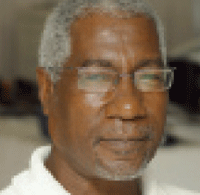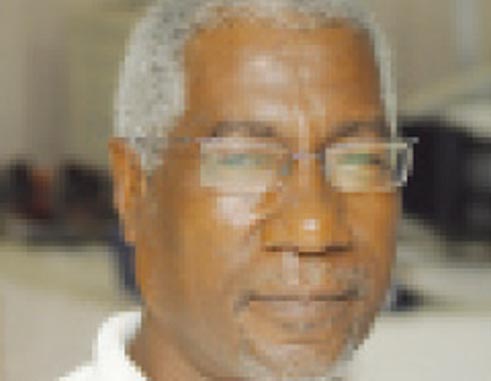
The election of a comedian as the next President of Ukraine has been big news ever since he trounced a billionaire chocolate mogul who sweetened his way into office in elections that followed a recent popular revolt against his predecessor.
The new President, Volodymyr Zelensky has no party and had no manifesto, his party existing only on paper for the poll and named after his very popular TV show, in which he played a teacher-tuned-president of Ukraine. But he trounced billionaire Petro Poroshenko with 73% of the votes cast.
An entirely new figure with no political experience, Zelensky benefitted from the widespread dissatisfaction of Ukrainians with Poroshenko’s rule and his failure to deliver on promises to end corruption and stop the separatist war in the nation’s east.
The new president is a 41-year-old who has experienced all that his fellow citizens have gone through in the past decade. But, being a comedian with no activist background, he’s seen as more inexperienced and unprepared for the job than the average political newcomer.
Not yet sworn-in, the novice remains tight-lipped on where he would take Ukraine, but voters of all walks of life welcomed him as the best alternative, opting to trust a total newcomer instead of any of the experienced contenders in the race, including a previous prime minister.
Poroshenko unsuccessfully campaigned on a ticket that painted Zelensky as a puppet of the exiled Ukrainian billionaire who owns the TV station airing his popular comedy series. But that appeal fell flat in a country where oligarchs like the ‘Chocolate King’ himself have always ruled the political roost since the fall of the Soviet Union (USSR).
Zelensky now faces mammoth tasks: forming a Cabinet to run the next government, creating a party to contest upcoming parliamentary elections, delivering on his promise to make peace in the east, restoring good ties with Russia, establishing new ties with Europe – but most of all, to give Ukrainians that sense of certainty that their popular choice was worth each ballot.
Those who mistakenly think that politicians are born instead of bred have little hope that the Ukrainian comedian will make a successful transition to a people’s politician. But Zelensky will not be the first to show it is possible.
Europe and Latin America have seen comedians elected to top national political office: Italy’s Five Star movement was led by a comedian and sealed its place in the country’s politics today; and in Guatemala, comedian Eddy Morales was also elected President – plus, Ronald Reagan and Donald Trump were both screen actors elected as President of the USA.
The Caribbean has elected popular calypso singers, cricketers and other popular cultural artistes to office, including Haiti’s popular local Hip Hop singer ‘Sweet Mickey’, who was elected as President Michel Martelly in 2011 and served until 2016, backed in his bid by US-based fellow Haitian and popular international Hip Hop star Wyclef Jean (of ‘Fugees’ fame).
This region has not yet elected a comedian to top office. But in at least one instance, a TV comedian on a small island established a political party that contested national elections – and did well.
Saint Lucia’s Christopher Hunte was a young host of a weekly TV show that turned politics and politicians on their head and became as popular nationally as Zelensky’s in Ukraine.
Hunte’s show, called ‘Lucians’ (short for Saint Lucians) poked fun at politicians on all sides of the national political divide – including his father, then Opposition Leader (Julian R. Hunte) in the national parliament.
Very popular among the youth of a small island of 238 square miles (616 square kilometers) and 175,000 people — over two-thirds born after independence in 1979 — Hunte, with the popularity of ‘Lucians’, launched and officially registered The Staff Party to contest the 2006 General Elections.
The Staff Party represented more of a protest youth vote than an alternative government. But even while it did not win any seats, some of its candidates did better than some from the traditional established political parties.
And for a party that only made fun of politicians, its overall election score compared well against the national average of the two major parties that have run the country since the British allowed voting in 1951.
Unlike Zelensky, Hunte knew his Staff Party would not win; but like the Ukrainian comedian, he too attracted sufficient votes from people fed-up with the traditional parties to send a clear message that voters can and will protest with their ballots, if and when genuine opportunities arise.
The Staff Party departed the political stage after its first and last election outing, but more than a decade later Hunte is still a very popular TV personality at home, his latest series aptly entitled ‘Politically Incorrect’.
He’s also developed a reputation as a lone wolf protestor bearing placards against everything from political corruption to ongoing government efforts to build a park for captive dolphins on a national landmark protected by the island’s National Trust.
A big question is: Will Zelensky succeed where Hunte didn’t and build a strong and ruling party from a TV show? An even bigger one is: Will the actor who ran Ukraine on TV now do well in real life?
That’s left to soon be seen.
But even from a long transatlantic distance, the two still-young men can learn much from each other’s experiences in transforming comedy shows into real-life electoral and political machines.











